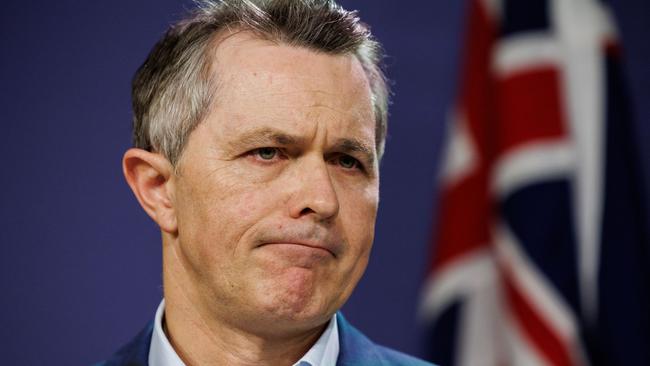
But reason counts for nothing because, instead of examining the issue with a clear mind, it is tripling down, driven by a perceived political need to head off a Coalition attempt to paint Labor as weak on migration in the coming federal election campaign.
Last week came the third major intervention designed to scare away international students. The government raised the student visa application fee from $710 to $1600. The disincentive impact of this 125 per cent fee hike is magnified by the fact that the fee is non-refundable when a visa application is refused.
Since December the government has followed a policy of turning down a higher proportion of student visa applications under criteria that appear arbitrary, rather than using clear guidelines. So for students, the question of whether they are going to have a visa application refused, and lose their $1600 fee, increasingly looks like a lottery.
December’s move was part of the government’s first sally against the education export industry. Apart from upping the rate of visa refusals, the Home Affairs Department also slowed down student visa processing.
The next attack came in the May budget when the government announced it would cap the number of international students and decided to do it in the hardest way possible by applying a different limit to each institution and reserving for itself a power to limit numbers by location of campuses and by individual courses.
Education Minister Jason Clare will only wield this power if the government manages to pass legislation, which is currently before a Senate inquiry and must pass the Senate to be enacted.
At this point we need to remind ourselves of the size of the education export industry. International students spent $49bn in Australia in the year to March 2024.
They not only spend on tuition fees (where it directly supports education jobs) but also on accommodation, food, transport and other living expenses, which directly boosts the economy. The Business Council of Australia pointed out last week that international students were responsible for nearly a quarter of Australia’s economic growth in the year to the March quarter.
The only rational part of the government’s international student policy is the necessary crackdown on dodgy colleges and education agents, which used the return of students after Covid to exploit loopholes in the system to bring in non-genuine students seeking only to work in Australia.
But the rest of it is purely political, placing what Labor sees as an election imperative before responsible policy. It is having a devastating impact on universities. Institutions with high numbers of richer Chinese students, who are of lower visa risk, are relatively protected under the government’s new policies. But other universities are not. “Three-quarters of the sector is seriously underwater,” says RMIT vice-chancellor Alec Cameron.
He says the post-Covid return of international students was very uneven across universities. “Higher enrolment (of international students) is concentrated in a very small number of universities. Most universities are not back to their pre-Covid numbers,” Cameron says.
Much depends now on whether the government’s international student caps legislation passes the Senate.
Trying to apply different caps to different institutions is a cumbersome policy that is administratively nightmarish. As ANU higher education researcher Andrew Norton says in his blog, even the Home Affairs Department and the Australian Skills Quality Authority, which regulates vocational education, are pointing out the difficulties of implementing the caps in their submissions to the Senate inquiry.
It doesn’t look remotely possible to implement caps before the election, after which the political motive for them is lost. For this, and other reasons, the government has to change course.




If reason counted for anything the Albanese government would pull the political blinkers from its eyes, take a look at the dire economic and educational consequences of its mission to decimate Australia’s international student industry, and rapidly reverse course.